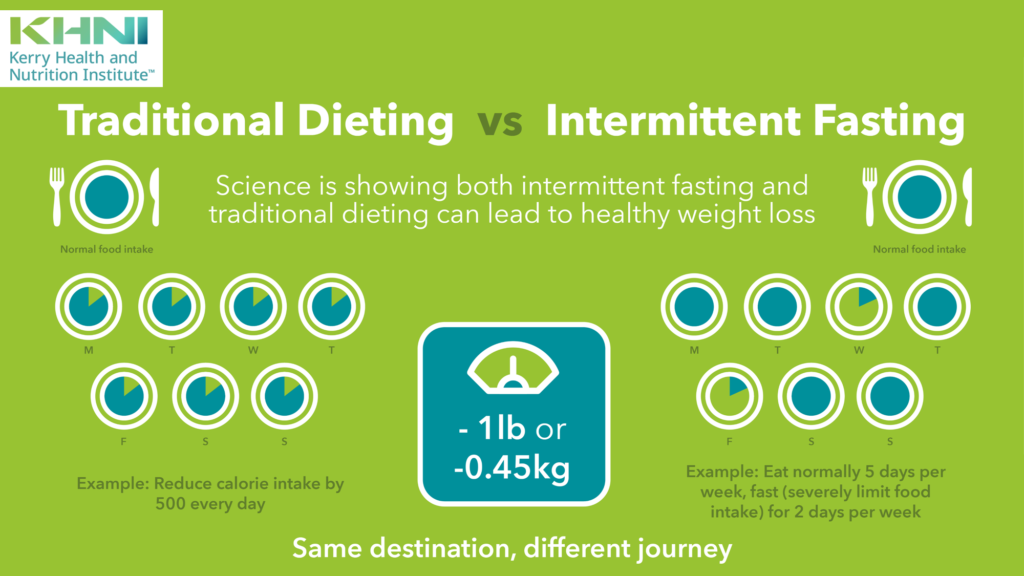In recent years, intermittent fasting has become one of the most popular health trends worldwide. From celebrities to fitness experts, many people swear by it as a way to lose weight, boost energy, and improve overall health. But is intermittent fasting backed by real science, or is it just the latest fad? This article explores what intermittent fasting is, the science behind it, and whether it’s right for you.
What is Intermittent Fasting?

Intermittent fasting (IF) is an eating pattern where people cycle between periods of eating and fasting. Unlike traditional diets that focus on what to eat, IF focuses on when to eat. There are several popular methods of intermittent fasting, including:
- 16/8 method: Eating during an 8-hour window and fasting for 16 hours each day.
- 5:2 method: Eating normally for five days a week and reducing calorie intake on two non-consecutive days.
- Eat-Stop-Eat: Fasting for 24 hours once or twice a week.
These fasting windows allow the body to rest from constant digestion and may trigger health benefits.
The Science Behind Intermittent Fasting

Scientists have studied intermittent fasting for many years, mainly in animals, and more recently in humans. Research shows that IF may have several benefits:
- Weight Loss
When fasting, the body uses stored fat for energy, which can help reduce body fat. Studies show that many people lose weight and belly fat through IF because it helps reduce calorie intake without strict dieting. - Improved Metabolism
Fasting may improve the body’s ability to burn fat by changing hormone levels. For example, insulin levels drop during fasting, making it easier for fat to be used as fuel. - Better Brain Health
Some studies suggest IF may protect brain cells and improve memory. It may reduce inflammation and help with brain diseases like Alzheimer’s. - Increased Longevity
Animal studies show that fasting can extend lifespan by improving overall health and reducing the risk of chronic diseases like heart disease and diabetes.
However, it’s important to remember that most long-term studies in humans are still ongoing, and scientists are working to confirm these benefits fully.
Is Intermittent Fasting Safe?

For many healthy adults, intermittent fasting is safe and can be an effective way to lose weight and improve health. However, it’s not suitable for everyone. Pregnant or breastfeeding women, children, people with certain medical conditions like diabetes, or those with a history of eating disorders should consult a doctor before trying IF.
Also, some people may feel hungry, tired, or irritable during fasting periods, especially at the beginning. It’s important to listen to your body and stop if you feel unwell.
Common Myths About Intermittent Fasting
As IF has gained popularity, many myths and misconceptions have spread. Here are a few common ones:
- Myth 1: You Can Eat Anything During Eating Windows
Even though IF focuses on when you eat, the quality of food still matters. Eating unhealthy foods can reduce benefits and harm your health. - Myth 2: Fasting Slows Down Your Metabolism
Research shows that short-term fasting can actually boost metabolism rather than slow it down. - Myth 3: Fasting Causes Muscle Loss
When done correctly, IF preserves muscle mass, especially if combined with strength training and adequate protein intake.
Who Should Try Intermittent Fasting?
Intermittent fasting may be a good option for people who want a flexible and simple approach to dieting. It doesn’t require complicated meal plans or calorie counting. IF can fit well into busy lifestyles and may help those struggling with traditional diets.
That said, it’s not a magic solution. The best results come from combining IF with a balanced diet and regular exercise.
What Experts Say
Health experts generally agree that intermittent fasting shows promise but caution that more research is needed, especially for long-term effects.
Dr. Emily White, a nutritionist, says, “Intermittent fasting can be a helpful tool for some people, but it’s not for everyone. It’s important to consider your health, lifestyle, and goals before starting.”
Final Thoughts: Science or Fad?
Intermittent fasting is more than just a fad—it has a growing body of scientific evidence supporting its benefits. However, it’s not a one-size-fits-all solution, and more studies are necessary to understand its long-term effects fully.
If you are curious about intermittent fasting, talk to your healthcare provider to see if it fits your needs. Remember, sustainable health comes from balanced eating, physical activity, and good habits—not quick fixes.
Read More:- Best 10 Out Door Games For Kids









Leave a comment